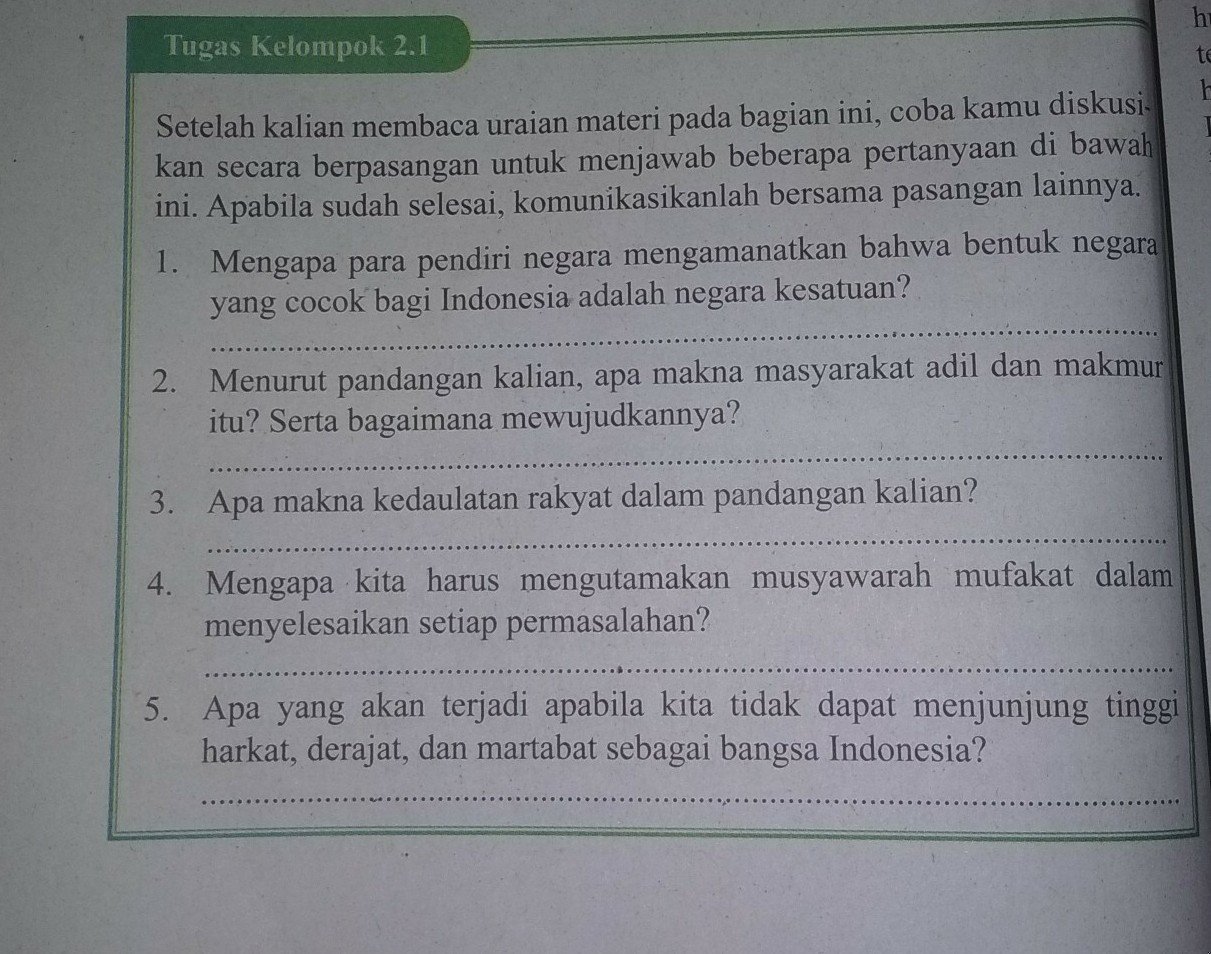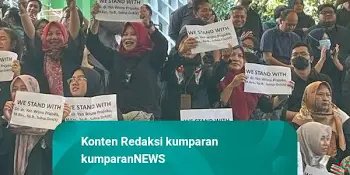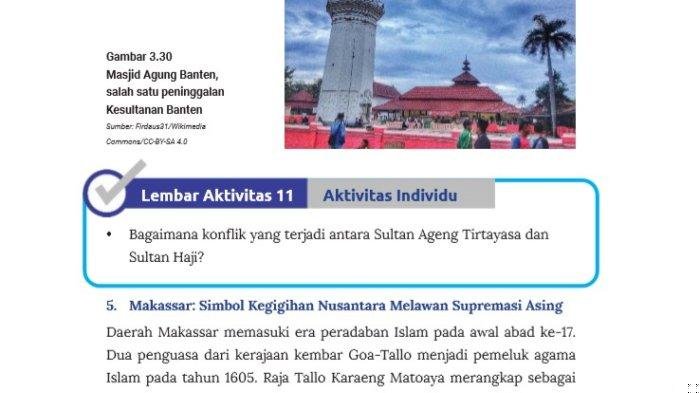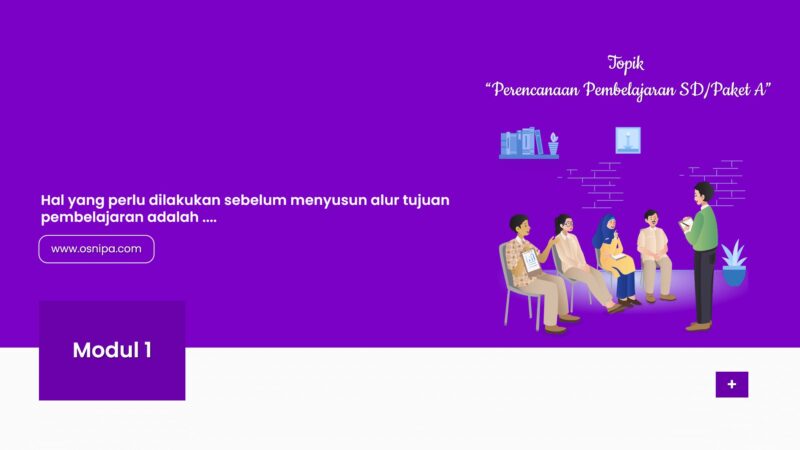Mengapa Kita Harus Mengutamakan Musyawarah Mufakat Dalam Menyelesaikan Setiap Permasalahan

In a world filled with differing opinions and complex issues, prioritizing consensus through deliberation is essential. Musyawarah mufakat, or collective decision-making, fosters understanding and unity, allowing diverse voices to shape outcomes. When we ask, “mengapa kita harus mengutamakan musyawarah mufakat dalam menyelesaikan setiap permasalahan,” the answer lies in its ability to create solutions that everyone can support. By engaging in this process, we not only resolve conflicts effectively but also build stronger relationships within our communities.
Why We Should Prioritize Musyawarah Mufakat in Solving Every Problem
Musyawarah mufakat, or deliberative consensus, plays a vital role in fostering collaboration and harmony within a community or group. This traditional practice of decision-making encourages open dialogue, respects diverse opinions, and seeks common ground rather than confrontation. Understanding the importance of musyawarah mufakat can greatly enhance our ability to tackle problems effectively while strengthening social bonds.
The Essence of Musyawarah Mufakat
Musyawarah mufakat is deeply rooted in cultural practices, particularly in various Indonesian communities. At its core, it emphasizes collective discussion and agreement, allowing everyone involved to voice their perspectives. This creates a sense of ownership over decisions and fosters an inclusive environment.
Some key aspects of musyawarah mufakat include:
- Inclusivity: Everyone has a chance to contribute, leading to more diverse ideas.
- Collaboration: Encourages teamwork and shared responsibility.
- Respect: All opinions are valued, which promotes mutual respect among participants.
- Conflict Resolution: Helps to address disagreements amicably, preventing escalation.
By embracing musyawarah mufakat, groups can work together to navigate challenges more effectively, building a stronger sense of community.
Benefits of Musyawarah Mufakat
Understanding the benefits of prioritizing musyawarah mufakat can inspire individuals and organizations to adopt this approach in their decision-making processes. Here are several key advantages:
Enhanced Problem Solving
When individuals come together to discuss a problem, they bring various perspectives and insights. This collaborative effort can lead to innovative solutions:
- Diversity of Thought: Different backgrounds and experiences lead to a range of ideas.
- Greater Creativity: Group discussions often spark creative solutions that an individual might not consider alone.
By pooling knowledge and skills, groups can arrive at solutions that are more thorough and well-rounded.
Strengthened Relationships
Musyawarah mufakat builds trust and strengthens relationships among group members. When people feel heard and valued, their connections deepen:
- Improved Communication: Open dialogue leads to better understanding and reduced misunderstandings.
- Increased Trust: Participating in consensus-building fosters trust, as members feel their views are respected.
As relationships strengthen, collaboration becomes easier, creating a positive cycle.
Promotion of Social Cohesion
In communities and organizations, musyawarah mufakat promotes a sense of belonging and unity:
- Shared Goals: Collaborative decision-making helps align everyone towards common objectives.
- Empowerment: People feel empowered when they contribute to decisions, leading to a more engaged community.
Stronger social cohesion leads to more resilient communities, capable of facing challenges together.
Practical Steps for Implementing Musyawarah Mufakat
Implementing musyawarah mufakat may seem daunting, but by following some practical steps, anyone can foster a collaborative environment:
Creating a Safe Space
For effective musyawarah mufakat, it is crucial to establish a safe space where individuals feel comfortable expressing their thoughts. Consider the following:
- Encourage Openness: Promote a culture where participants can speak freely without fear of judgment.
- Set Ground Rules: Establish guidelines for respectful communication and active listening.
A supportive atmosphere lays the groundwork for productive discussions.
Facilitating Discussions
A skilled facilitator can help guide the conversation and ensure everyone has a chance to participate:
- Active Listening: Encourage participants to listen attentively and engage with each other’s ideas.
- Summarizing Key Points: Regularly summarize the discussion to keep it on track and ensure everyone understands.
Effective facilitation makes discussions more organized and focused.
Encouraging Consensus
The ultimate goal of musyawarah mufakat is to reach a consensus. Here are some tips for achieving this:
- Focus on Common Ground: Highlight shared goals and values to guide discussions.
- Be Patient: Consensus-building can take time; allow for thorough discussion and exploration of ideas.
Finding common ground fosters unity and ensures that decisions reflect the group’s collective perspective.
Case Studies Demonstrating the Power of Musyawarah Mufakat
Understanding how musyawarah mufakat has been effectively implemented in various contexts can illustrate its benefits. Here are some examples:
A Community Issue
In a small village facing water scarcity, local leaders convened a musyawarah to address the issue. Through open discussions, community members shared their experiences and proposed solutions.
Key outcomes included:
- Formation of a water management committee.
- Implementation of rainwater harvesting techniques.
- Creation of awareness campaigns about water conservation.
This collective effort not only solved the water scarcity problem but also strengthened community bonds.
An Organizational Challenge
A non-profit organization struggled with staff retention. The management initiated a series of musyawarah sessions with employees to identify the root causes.
Through these discussions, they discovered:
- Need for better communication from management.
- Desire for more professional development opportunities.
- Importance of recognizing employee contributions.
As a result, the organization implemented changes, leading to improved satisfaction and reduced turnover rates.
Overcoming Challenges in Musyawarah Mufakat
While musyawarah mufakat has many benefits, it may also face challenges. Recognizing and addressing these challenges can enhance its effectiveness:
Dealing with Dominant Voices
In group discussions, some individuals may dominate the conversation, overshadowing quieter voices. To combat this:
- Encourage Participation: Actively invite quieter members to share their thoughts.
- Set Time Limits: Limit speaking time for individuals to ensure balanced contributions.
Ensuring everyone has a chance to contribute is crucial for meaningful consensus.
Navigating Conflict
Disagreements may arise during discussions. Here’s how to handle them:
- Maintain Respect: Remind participants to address ideas, not individuals.
- Seek Common Ground: Focus on areas of agreement to help resolve conflict.
Handling conflicts constructively fosters a positive atmosphere for collaboration.
Time Constraints
In some situations, time may be limited, making it challenging to reach consensus. To manage this:
- Prioritize Key Issues: Focus on the most pressing matters that require consensus.
- Break into Smaller Groups: If necessary, divide into smaller groups to tackle different aspects of the issue.
Effective time management encourages progress while still valuing input.
Prioritizing musyawarah mufakat in problem-solving can lead to more effective, inclusive, and meaningful outcomes. As we foster open communication, respect diverse perspectives, and work collaboratively, we not only find better solutions but also strengthen our communities. Embracing musyawarah mufakat ensures that everyone’s voice is heard and valued, promoting a healthier, more engaged society. By implementing these practices and addressing challenges, we pave the way for a more harmonious and prosperous future for all.
MUSYAWARAH DAN MUFAKAT (Pengertian, Ciri-Ciri, Prinsip, Aturan, Sikap & Tata Cara Musyawarah)
Frequently Asked Questions
“`html
What are the benefits of prioritizing consensus-building in problem-solving?
Prioritizing consensus-building brings numerous benefits, such as fostering collaboration and unity among participants. When everyone engages in open discussions, it encourages diverse perspectives and ideas, leading to more comprehensive solutions. Additionally, consensus fosters a sense of ownership and commitment among individuals, as they feel their voices contribute to the final decision. This collaborative approach can also minimize conflicts and misunderstandings, creating a more harmonious environment.
How does consensus affect decision-making processes?
Consensus significantly improves decision-making processes by ensuring that all participants feel heard and valued. When individuals engage in constructive discussions, it allows them to weigh different viewpoints and clarify misunderstandings. This process leads to more informed and balanced decisions. Moreover, decisions reached through consensus often enjoy higher acceptability, as team members are more likely to support outcomes they helped create.
Can consensus-building lead to better long-term solutions?
Yes, consensus-building often leads to better long-term solutions. When a group reaches an agreement through dialogue and collaboration, the resulting solutions are usually more sustainable and practical. Since the solutions incorporate input from various stakeholders, they tend to address the underlying issues more effectively. This comprehensive understanding helps prevent recurring problems and fosters a proactive approach to future challenges.
What role does communication play in achieving consensus?
Effective communication is crucial in achieving consensus. Open dialogue enables participants to express their thoughts, concerns, and suggestions freely. Good communication helps clarify misunderstandings and ensures that everyone has a clear understanding of the issues at hand. Additionally, active listening plays a significant role, as it allows individuals to acknowledge others’ viewpoints and build mutual respect, which is essential for reaching a common agreement.
How can consensus-building enhance team dynamics?
Consensus-building enhances team dynamics by promoting trust and teamwork. When team members work together to reach a common agreement, they build stronger relationships and foster a supportive environment. This process encourages collaboration, making individuals more willing to share ideas and take risks, knowing their contributions are valued. As a result, teams become more cohesive, resilient, and effective in tackling challenges together.
“`
Final Thoughts
Musyawarah mufakat serves as a powerful tool for resolving conflicts and fostering unity. By engaging in open dialogue, we ensure that every voice is heard, leading to more inclusive and sustainable solutions.
Incorporating diverse perspectives enhances our decision-making process, producing outcomes that reflect the community’s needs. Furthermore, prioritizing musyawarah mufakat builds trust and solidarity among individuals, reinforcing social bonds.
In conclusion, ‘mengapa kita harus mengutamakan musyawarah mufakat dalam menyelesaikan setiap permasalahan’ lies in its ability to cultivate harmony and collaboration. Embracing this approach can lead to a more just and equitable society for everyone.







